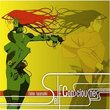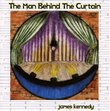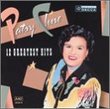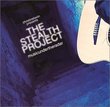| All Artists: Harry Nilsson Title: Little Touch of Schmilsson in the Night Members Wishing: 2 Total Copies: 0 Label: RCA Original Release Date: 1/1/1973 Re-Release Date: 5/23/2006 Album Type: Extra tracks, Original recording remastered Genres: Folk, Pop, Rock, Broadway & Vocalists Styles: Contemporary Folk, Singer-Songwriters, Soft Rock, Oldies, Vocal Pop, Musicals, Traditional Vocal Pop Number of Discs: 1 SwapaCD Credits: 1 UPC: 828767824826 |
Search - Harry Nilsson :: Little Touch of Schmilsson in the Night
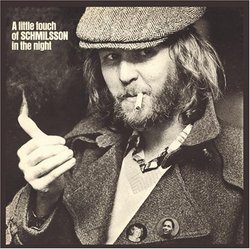 | Harry Nilsson Little Touch of Schmilsson in the Night Genres: Folk, Pop, Rock, Broadway & Vocalists
Harry Nilsson, A Little Touch of Schmilsson in the Night |
Larger Image |
CD DetailsSynopsis
Album Description Harry Nilsson, A Little Touch of Schmilsson in the Night Similar CDs
Similarly Requested CDs
|
CD ReviewsYou Must Remember This... James R. Morris Jr. | Asheboro, NC USA | 05/30/2006 (5 out of 5 stars) "The remastered release of Harry Nilsson's Touch is cause for celebration. In a time when American Idols reign supreme, and faded pop singers try to resurrect ailing careers singing standards, yielding excruciating results, this CD reminds us that Mr. Nilsson was perhaps the first rocker to successfully record an album of standards. Along with Willie Nelson's 1978 Stardust, these two lps introduced an entire generation to its own musical heritage. But Mr. Nilsson's lp was first, and finest. I purchased it back then (1973) and was transported by its romantic lyricism. Like many Beatles generation's kids, I was not enamored with the 70's music. Disco was on the horizon, jazz was becoming fusion, and country was becoming pop with a southern accent. The only place to go was to the past. And Mr. Nilsson must have known this. He didn't undertake this project to resurrect his own career, as he was on top at the time. It was a risky move; some warned of career suicide. The results, both commercially and critically, thankfully proved otherwise. The album itself is composed mainly of prewar, (WW11 that is,) standards written by the likes of Gus Kahn, Herman Hupfield, and Irving Berlin. The lesser known jewels "Lazy Moon" and "Lullaby In Ragtime" glimmer just as much as the more familiar "Always", "Making Whopee", and "As Time Goes By". Mr. Nilsson employs a respectful approach, preventing a degeneration into camp, a la Tiny Tim. The renditions are joyous, and full of vitality, but not overdelivered (unlike so much of the bellowing we hear today). His vocals caress each lyric, and being who he is, Mr. Nilsson avoids the solemnity that often mars so many of these projects, while simultaneously rejecting the whimsey that was beginning to stereotype him. Much of the credit for the album has to go to Gordon Jenkins for his arrangements and direction of the 39 piece orchestra. For many of us, the past sounds like Gordon Jenkins: sumptious, elegant, and full of grace. This lp stands alongside Mr. Jenkins best work, including the lp "Where Are You". For me, Touch served as a launching pad, albeit into the past, and led me down a path where I discovered those singers and artists before the Beatles, and before Elvis. Jo Stafford, Jeri Southern,and Hoagy Carmichael became favorites; then I happened upon jazz, where the standards, particularly since Mr. Nilsson's lp, seem to be valued and constantly reinterpreted. I like to think Touch had something to do with that. Finally, I have come to rest where all paths in popular music inevitably lead- to Frank Sinatra's doorstep. And waiting in the wings- much to my surprise- with Mr.Sinatra, was Gordon Jenkins and the aforementioned "Where Are You". Mr. Sinatra's seminal 1957 lp emanates with much of the same sense of longing and sweet sadness that haunts Mr. Nilsson's. My musical route, circuitous as it was, and some 30 years in the making, had come full circle. And now, a few years later, the lp that started it all-Touch- has finally been remastered and released, sending me back in time once more...This is all I ask, this is all I need... " The import is arranged for a better listen. S. Baird | Baton Rouge, LA United States | 09/17/2006 (3 out of 5 stars) "I've reviewed this album twice before on the Amazon site, first for the Australian import version entitled, "As Time Goes By," and then some while later when the British import version became available here. THERE ARE DIFFERENCES here that may be of interest to someone who has not yet discovered this magnificent collection, and these differences may be important enough for you to consider one version over another. The audiophile with an especially capable system will prefer the British pressing. First, and perhaps most importantly, the new domestic remaster simply adds the bonus tracks to the end of the album after following the original 13-song LP sequence. In my opinion, this is something of a disservice since it appears to me (and to some professional critics) that the song, "As Time Goes By," is intentionally placed at the end of the album -- in either the truncated original 1973 release or the expanded British and Australian imports -- because the artist intended the song to be an epilogue expressing the theme of the album as a whole. The tune emphasizes the importance of the various phases of many interpersonal relationships as they evolve from courtship ("Lazy Moon") through marriage ("For Me & My Gal"), infidelity ("Makin' Whoopee") and irreconcilable differences ("Thanks For The Memories"). Along the way, Nilsson is mindful of the importance of introspection ("This Is All I Ask) and his own mortality ("Over The Rainbow"). Not only does this new remaster merely append the five additional tunes omitted from the original release, there are two non-essential asides that are attached to two songs, but not indexed (one from an engineer telling Nilsson that he has "all the time he needs but not a second extra." The other is a request from Nilsson that he is provided with a cigarette, some whiskey and some drugs.). These two instances on the domestic remaster are placed within the bonus tracks segment so that the album loses its continuity -- breaking a spell, perhaps. On the British import, the engineer's remarks precede the album in its entirety. Nilsson's request for drugs and whiskey was omitted from the British import altogether, but it appears at the end of "Over The Rainbow" on the domestic remaster. This results in a somewhat devalued effect for many listeners, myself included. Some may note that the revised lyrics for two song selections on the album might suggest the artist's nonchalant attitude toward this album; personally I consider them as comic relief. Second in importance is the artwork that accompanies these two releases. While both the British import and the newer remaster provide the original jacket photo, only the British import follows the inner illustrations of the original gatefold, and in full color, just like the original. The new domestic release provides us with some sense of what was there (black and white only), but moves the musicians' credit to the back of the booklet. Both versions include producer Derek Taylor's introduction to the album, but beyond that is where the real differences are found. There is a more extensive set of notes to the domestic release. Curtis Armstrong wrote these notes in February 2006; the British import features an essay written by Andrea Sheridan in January 2002. Both are informative for the completist." Supurb Departure to the Classics John-erik Elmore | Gainesville, Florida | 01/23/2007 (5 out of 5 stars) "Nilsson sings some of THE classics. One of the best albums ever recorded. There are no breaks between songs and the London Philharmonic has a dreamy score backing him up. If you are looking to woo someone, this is the album for you."
|

 Track Listings (18) - Disc #1
Track Listings (18) - Disc #1